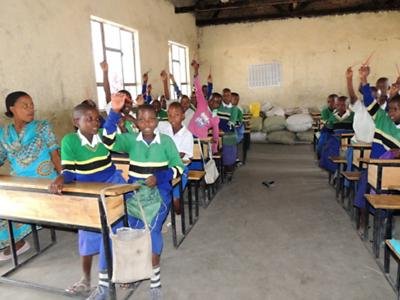Conferences & Courses
Over the years, Martha Honey has led or played a key role in organizing numerous conferences, think tanks, and forums around the world. This involved raising funds for the event, preparing the agenda, inviting speakers, and producing follow up reports. She also lectures regularly to university classes, via Zoom and in person, and has developed and taught courses on a range of topics related to sustainable tourism.
Highlights INCLUDE
RESPONSIBLE TRAVEL COURSES, 2020 & 2021
During the Covid Pandemic, Martha created and taught two ZOOM courses on Responsible Travel as part of Bard College’s Lifetime Learning Institute (LLI). Tailored to older learners, many of whom are avid travelers, the courses ran for seven weeks each and included a range of power point presentations, films, and guest experts. In addition, Martha continues to lecture on a range of tourism topics to university classes and public forums, including Yale, Endicott, Pratt, Hawaii Pacific University, Penn State, Claremont Colleges, Rotary Club of Monterey, and York Club of Toronto.
Impact Tourism: Giving Time, Talent, & Treasure, 2019
CREST’s 2019 World Tourism Day forum in Washington, DC unveiled the new name for Travelers’ Philanthropy through a series of six panels with experts and practitioners from around the world.
Overtourism: Seeking Solutions, 2018
A one-day forum held on World Tourism Day, September 27, to examine overtourism which is undermining some of the world’s most popular and iconic destinations. Co-hosted by the Center for Responsible Travel (CREST) and the International Institute of Tourism Studies at The George Washington University
Sustainable Tourism in Cuba, 2017 & 2019
Assisted the University of Pinar del Rio in organizing the “2nd International Congress on Marketing, Local Development, and Tourism” in 2017. This included recruiting and bringing international experts to the 4-day conference and study tour of Viñales, assisting in financing the conference, determining the program, and overseeing logistics. In 2019, she helped to organize a second ecotourism conference with the University of Pinar del Rio and another conference at the University of Holguin, in Holguin province.
Cruise Tourism: Lessons Learned from Other Destinations, 2017
Workshop in Havana hosted by the Cuban magazine, Temas to present the results of our year-long study of cruise tourism to leading academics, government officials, tourism practitioners, and the media.
UN’s International Year of Sustainable Tourism, 2017
A day-long forum held in Washington, DC together with the United Nations Development Programme to honor the UN’s Year of Sustainable Tourism.
Innovators Think Tank on Climate Change and Coastal and Marine Tourism, Puntacana, Dominican Republic, 2015
Invitation-only think tank brought together 23 Caribbean experts to focus on how coastal and marine tourism must be planned, built, and operated in the era of climate change.
3rd Symposium for Innovators in Coastal Tourism & Climate Change, St. George’s, Grenada, 2015
Martha led CREST in organizing this Symposium attended by 150 Caribbean delegates with some 50 speakers and 14 workshops examining climate change and tourism in the Caribbean.
2nd Executive Symposium for Innovators in Coastal Tourism, Los Cabos, Mexico, 2013
Martha led CREST in organizing this Symposium for 140 innovators in designing, financing, constructing, and operating environmentally and socially sustainable coastal tourism developments.
Rethinking Coastal Tourism Development: The Importance of Innovation in Times of Climate Change and Economic Crisis, 2010
Martha was a lead organizer of this symposium at Stanford University, which became the first in a series of international conferences focused on new models for coastal tourism development. Attended by 85 invited executives and experts.
Travelers’ Philanthropy, 2003, 2008, 2011
A series of three international conferences held in Costa Rica (2011), Tanzania (2008), and at Stanford University (2003) that brought together tourism businesses and community organizations to help develop best practices to guide Travelers’ Philanthropy (Impact Tourism) projects.




















